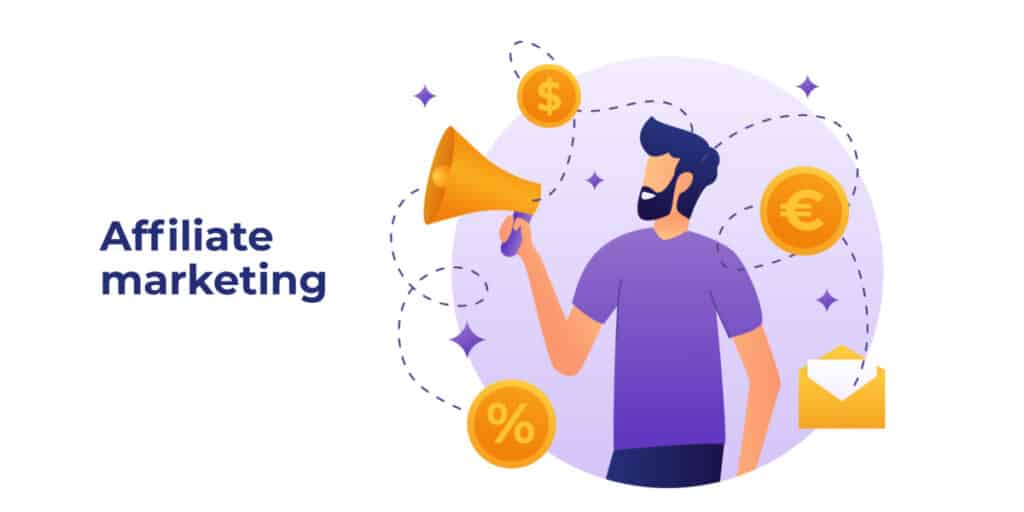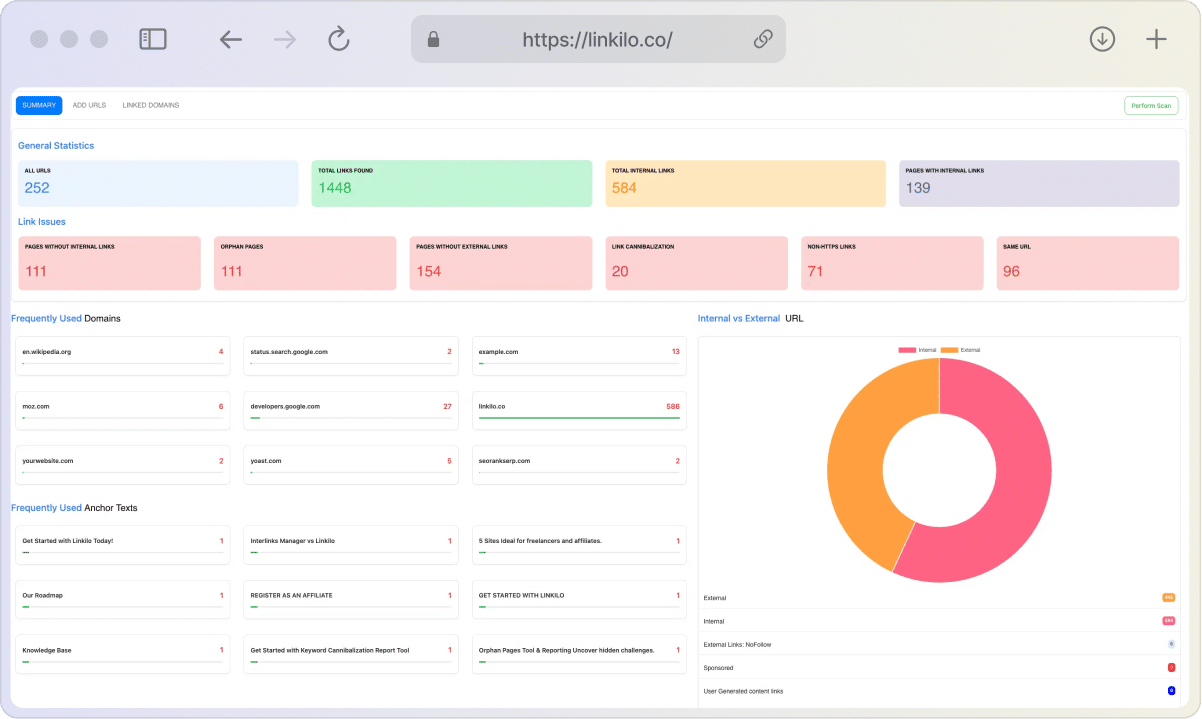You should write titles that make readers curious to learn more and click on your site. Power words can make your content catchy and interesting. This article is for you if you do not know what power words are and how to use them.
What is meant by “power words”?
Words that have been proven to elicit an emotional response from consumers are known as “power words,” Marketers and copywriters frequently utilize them. These emotions include curiosity or even anger, among others. Here is a list of the top power words you may use in your next advertisement, headline, or email subject.
What makes power words so effective in marketing?
Here are some reasons why power words are effective in marketing:
It elicits feelings
According to studies, power words are essential to eliciting these “high arousal” emotions. Emotions are what bring people together, not words. Content that evokes emotion (fear, amusement) is more likely to be shared than content that doesn’t elicit emotion.
For instance, words like “Reveals,” “Sports,” and “Show Off” arouse interest and elicit an emotional response, drawing readers in. Using action phrases may make your headlines more enticing and increase your click-through rate.
It piques interest
Since it’s human nature to be curious about new things, the smart use of power words makes it nearly impossible for readers to avoid clicking, sharing and reading. Words like “reveals,” “proves,” and “ridiculous” are powerful curiosity-arousers.
10 power words you can use for headlines
There is a well-known trend in the magazine industry of using dramatic language in headlines. Books and periodicals like Vogue, Elle, and OK! Popular publications like Magazine, InTouch, GQ, and Seventeen rely heavily on “power phrases” to encourage readers to purchase their publications.
Whether trying to write a catchy headline for a sales page or an essay that will go viral, using power words can make all the difference.
1. New
In this modern era, everything happens faster than ever before. In the 1970s, when the rate at which new technologies were being developed was thought to be dizzying, science fiction writers wrote of future shock.
Even though technological progress is happening at a greater rate than ever, our thirst for novelty or newness remains unquenched. The word “new” has an impact due to three factors:
Your claims cannot be challenged
A product can only be new when it hasn’t been on the market before. It’s a strong argument that can’t be countered. Saying something is “better” or “cheaper” makes people skeptical until they have more evidence to support their claim.
Implies improvement
To say something is “new” is to imply that it is an improvement. Therefore, it’s improbable that Apple’s next iPhone will be inferior to the one it replaces. Therefore, we think highly of anything brand-new.
Elicits curiosity
One definition of “new” is “surprising,” since anything is considered “new” if it is something the listener has never heard of before. In this way, it emulates the ‘curiosity gap’ of clickbait without concealing anything.
Attention-grabbing when paired with a good topic
An audience’s attention is easily captured by anything novel, but that novelty can be harnessed only if it’s linked to something interesting. Nobody cares about a new piece unless they’re already a fan of the author. Developing a novel cancer treatment is important for everyone.
2. This
The content landscape is more diverse and competitive than ever, so audiences are looking for something more stable to pin their hopes and efforts. This provides a simple method for generating attention-grabbing headlines. The word “the” has become the standard definite article in our language. This, though, is considerably more conclusive.
More concrete
For instance, it’s not just a car, not just that car; it’s THIS automobile that makes a difference.
Helps with concentration
Zeroing in on a certain topic improves your ability to focus and learn from what you’re reading.
Captures attention
Like “new” and “now,” “this” is something that needs your attention right away.
If you don’t want people to look at what you’re looking at, you need to direct their attention elsewhere.
3. Most
The value “most” can add to build an excellent blog title applies to almost any topic. Giving individuals the strongest, most effective, and most contentious material will give them the most compelling incentive to read. For instance, which would you like, “I want an electricity-efficient fridge” or “I want the most electricity-efficient fridge”? It’s the latter, isn’t it?
Sets as a standard
People looking for information online desire clear, flawless examples that are simple to understand. Using “most,” you can guarantee that every piece of your material will be held up as the gold standard, boosting its worth and importance.
Challenges competitors to prove their worth
If you use the word “most” in front of others who are well-versed in your field, they may feel compelled to prove that they, too, are the best at what they do. They will likely respond with criticism if they disagree with your evaluation. Accordingly, the word “most” can facilitate greater conversation.
4. Exclusive
You should get the word out if you have something none else does. Facebook’s initial one million users were drawn in by the service’s “exclusive” feel. Even though not all of his exclusives were true, they helped make Perez Hilton a millionaire.
The challenge with exclusive is that your material must be tailored to the promotion. Failing to follow through on promises made to an audience will damage your reputation and cause you to lose credibility.
Provides uniqueness
When you have an exclusive, no one else does. Your audience will have to come to you, as they will not learn this information anywhere else.
You get more value due to the rarity
Diamonds and gold are so valuable because of their scarcity, which also explains why they are so expensive. Value is dramatically increased the moment exclusivity is introduced.
You get appreciated for the effort exerted to get the exclusive
If you’ve worked hard to get an exclusive, your audience will appreciate it and become quite devoted to you.
5. Amazing
A certain amount of hyperbole always makes its way into ordinary speech. Before, the term used was “awesome. However, nowadays, it shifted to “amazing.”
Connotes good emotion
Unlike the ‘awe’ in awesome, which can be associated with feelings of fear and inadequacy on the part of the person experiencing them, the ‘awe’ in amazing is a good emotion, as it suggests we are startled and entertained. Moreover, amazing can be used as a versatile and humorous adjective.
It is a commonly used word
Because “amazing” is a word that people use, your usage of the term will support the audience’s preexisting worldview and appreciation of the fantastic. The lessons we took from the word “amazing” apply perfectly here.
It is a subjective term
Contrary to the absolute connotation of “most,” which implies a standard, “amazing” is a relative adjective. Traveling to a different country for the first time will open one’s eyes to practices that seem bizarre to those who are more accustomed to our culture. As a result, there is no possible incorrect application.
6. How to
How to articles are engaging blog post titles because they provide an immediate solution to a reader’s problem. They can also provide solutions to problems. Because of their effectiveness, how-to articles are among the most popular on the Internet.
Offers a solution
By providing a “How To,” you’re promising to help people who have an issue but don’t know how to solve it. This has been around longer than any advertising strategy you can think of. They save money by reading because you show them how to do it themselves. That’s a win-win situation in every sense.
Shows authority
Because you know something the reader doesn’t but have chosen to share with them, writing a “How To” article can establish you as an authority in your industry. This is the kind of action that fosters loyalty.
Teaches independence
With how-to articles, you teach your readers how to do a certain skill or solve a specific problem. This teaches independence to them, and in return, they feel a sense of gratitude towards you.
7. You and your
By using the words “you” and “your,” you get more in touch with your readers personally.
Gives your readers the feeling that you are addressing them personally
With the pronoun “you,” the reader is given the impression that the author is addressing them personally.
Narrows down your target audience
In addition to the title, utilizing “you” throughout the text can help keep you focused on your target audience and prevent you from becoming too egotistical in your writing.
Allows you to target your readers’ interests and needs
People’s assets, accomplishments, and difficulties are all referred to with the possessive pronoun “your,” which means they are the things they care about most. This ensures that it will be relevant because it will focus on issues important to the target audience.
8. What, which, when
The most important and basic questions commonly asked to include what, which, and when. The questions and issues they address are universal, and their solutions are equally useful.
Offers value
If the information begins with a phrase like “how to” or “what you can do,” you know it has some practical value.
Using “which” can help readers make a decision
Since choice paralysis is becoming more widespread in the modern world, using the word “which” to compare and rank alternatives is a great way to help your readers make a decision.
Using “when” provides solutions to specific situations, even hypothetical ones
Articles that use the word “when” in the title are tailored to guide a specific situation, whether through real-world examples or fictitious scenarios.
9. Why
The question “why” has always been asked, even when we were young. It is human nature to keep on asking about how things work.
Allows readers to explore more about their questions
The question “Why?” prompts an inquiring mind to go beneath the surface to discover the hidden forces at work beneath every aspect of our existence. These can be problems of a purely mechanical nature, as in physics or product design, or they can be questions of human behavior, as in psychology or advertising.
Provides answers to confusion or frustrations
We ask “why” when we’re confused or frustrated, and if you can help them sort things out, you’ll be a hero in their eyes. Helping others see the big picture and making sense of the details you share is a priceless asset.
Adds challenge or curiosity
When you add the word “truly” to the question “why,” even those who are well-versed in the topic will see it as a challenge to their existing beliefs and will rush to learn what it is that you know they don’t.
10. Numbers and figures
People enjoy reading lists. The majority of the top Google headlines have had some sort of numerical value. Combining the mentioned words above with figures will increase their impact. The most popular and heavily-visited websites use numbers in their most eye-catching headlines.
Helps readers quantify the information
The obvious point here is that numbers help individuals realize the scope of the information they would be receiving.
Provides variety
When consumers see a series of numbers, they know more than one topic will be covered.
Assigns value
Value is established through numbers in the same way as currency, but only up to a certain point. If there are too few, it won’t seem like much of an investment, and if there are too many, it will be difficult to keep track of everything.
More than 100 power words you can use for your next headline (in alphabetical order)
Here is a list of 100+ terms you can begin using in your post headlines immediately to improve your Click Through rate (CTR); strategically incorporate these words into your article headers to make them more appealing and eye-catching.
A
- Absolutely
- Achieve
- Actionable
- Amazing
- Avalanche
- Awesome
B
- Badass
- Best
- Better
- Boost
- Brilliant
- Bullshit
C
- Clever
- Complete
- Continuous
- Cool
- Crazy
- Creative
- Current
D
- Dangerous
- Distinct
E
- Easier
- Effective
- Efficient
- Enticing
- Essential
- Ever
- Excellent
- Exceptional
- Exciting
- Explosive
- Extreme
- Eye-catching
F
- Facts
- Fantastic
- Fascinating
- Fast
- Fluffs
- Free
- Fresh
- Funny
G
- Great
- Guarantee
- Guide to
H
- High-quality
- Huge
I
- Immense
- Important
- Impressive
- Incredible
- Interesting
- Intriguing
K
- Key
- Kick-ass
- Killer
- Known
L
- Latest
- Love
M
- Magnetic
- Major
- Master plan
- Mega
- Must have
N
- Neglected
- New
P
- Perfect
- Popular
- Powerful
- Pretty
- Proven
- Proven
Q
- Quick
R
- Real
- Rock-solid
S
- Secret
- Serious
- Sexy
- Shocking
- Significant
- Special
- Spice
- Strange
- Striking
- Strong
- Stunning
- Super
- Superb
T
- Top
- Total
- Tremendous
- Truth
U
- Ultimate
- Unbelievable
- Uncommon
- Unending
- Unfailing
- Unique
- Unknown
V
- Valuable
- Viral
- Warning
- Weird
- Worst
You shouldn’t think of these words as a gimmick for bringing people to crappy and no-value content; they may visit the site the first time, but they won’t visit again if they don’t find anything of interest.
How to effectively use power words for your headlines:
You may now confidently generate clicks since you can access a headline’s definitive list of the most successful terms. However, you must use this knowledge properly. Otherwise, your headline will not be clickable even if you have power words. For starters, ensure your keyword is included in the title and, ideally, at the beginning.
Here are also some tips:
Capture the interest of your reader
For readers to click on your content, their interest must be piqued first. For instance, a cute Reddit post about the Curiosity rover on Mars has gone viral because it captures the essence of human nature: the need to know. That’s the kind of thing you ought to get cozy with.
Capitalize on your emotions’ persuasive potential.
Make use of your reader’s emotions to persuade them. This is the reason why emoji marketing campaigns are popular nowadays.
Don’t be afraid to make bold claims
Putting forth a strong front is essential if you want to get noticed, and it’s been shown that making big promises tends to get people to click.
Make use of a CTA or call to action.
Explicitly state your desired action to the audience. If done well, you will have an increase in your conversion rate.
Do not mimic the tone of a robot but rather sound natural.
When utilizing articles like these as a guide, it’s tempting to become bogged down in the SEO figures and “write by the numbers.” Make sure that when people read your article, it feels like it is written by a human and not by a robot. People react to people, not robots.
Act on it; spread your content
Get the word out as quickly as possible if you have something exclusive to share. For instance, you can comment on trending topics or make use of your connections with big brands.
Be sure to do some search engine and social media optimization
Prioritize the target keywords you already know your audience uses in their search queries. Hence, you should check the popularity of the terms you’re considering.
Before composing any material, LSIGraph is useful for finding relevant keywords. LSI keywords recommend related terms to utilize to better match the user’s search intent.
Moreover, BiQ can analyze your material’s relevancy, sentiment, and readability and offer suggestions for improvement. BiQ evaluates your content against the top 10 search results for that keyword.
Using power words in subheadings
Most people won’t even bother reading what you’ve written, based on a study in 1997. This study holds even now. What people do is that they scan through text instead of reading it in full.
That is why it is important to use power words in subheadings to attract readers’ attention. Subheads with attention-grabbing terms encourage readers to read the entire piece rather than skimming it.
Bottomline
It is impossible to overstate the significance of headlines, as they are the first thing that readers (prospect or actual) will encounter and will either draw them in or turn them off. If your headline is nicely worded, it will drive the potential reader to your site, but if not, readers won’t even click it.
However, remember the importance of search engine optimization aspects of headline writing. Your SEO headline should include your keywords, so create it first. Then, choose the best words that fit your post titles and add them using the list above.





